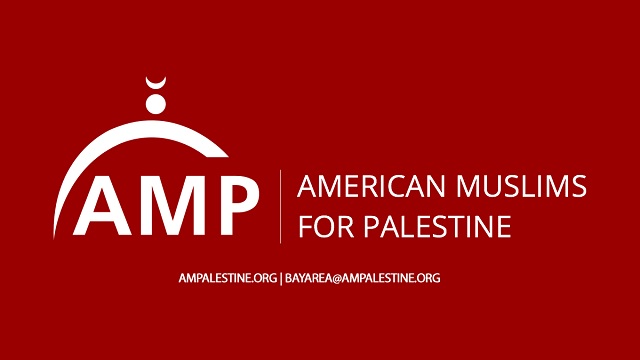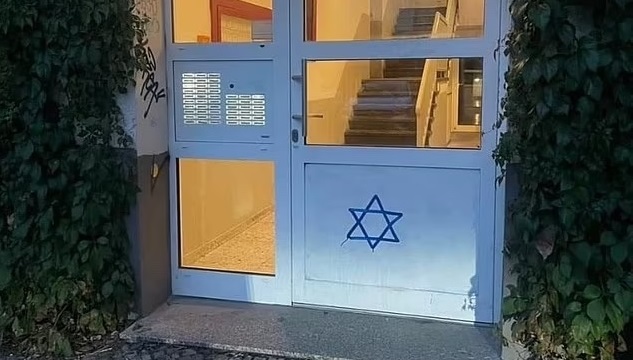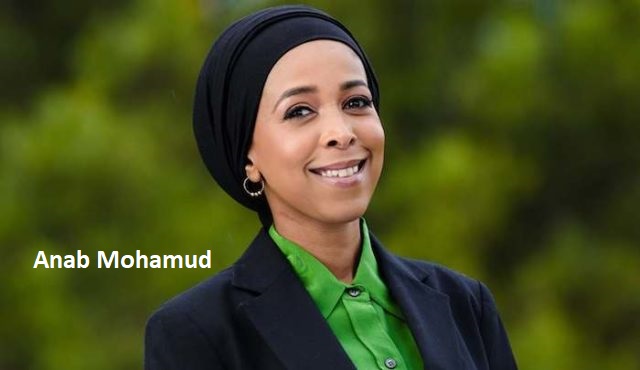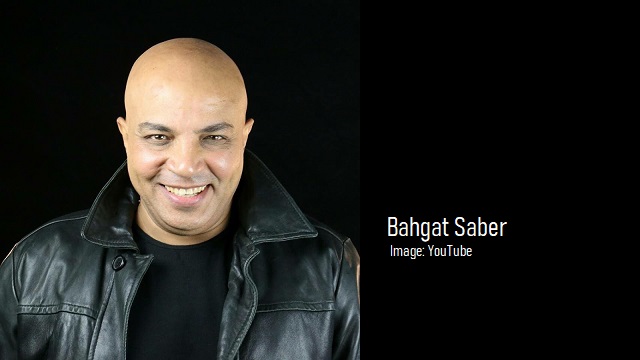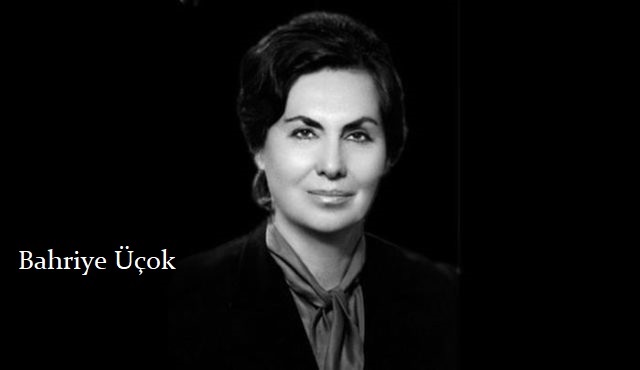
The hijab debate is once again on in Europe. “The Council of Europe has withdrawn images from a social media campaign promoting diversity among women and their freedom to wear the hijab,” Euronews reported on November 3:
The Council of Europe says the “Freedom in the hijab” project aimed to celebrate Europe’s diversity and inclusivity.
The project was launched last week by the Strasbourg-based human rights organisation through their Inclusion and Anti-Discrimination Programme.
The campaign was also co-financed by the European Union, which is distinct from the 47-country body.
Social media posts featured split images of young women, with one side of their face wearing an Islamic headscarf, and the other not. Messages alongside the videos and images read, “beauty is in diversity as freedom is in hijab.”
Is it really? Is freedom in hijab?
The life of Turkish Muslim Professor Bahriye Üçok speaks volumes about why the donning of the hijab by non-Muslim women (whatever the reason) is an insult to women’s rights.
Üçok was a pious Muslim who tried to offer a more modern and tolerant version of Islam. She was educated in Medieval Islamic and Turkish history at Ankara University and became the first female academic in the department of Islamic theology at her alma mater. She was also a writer, columnist, women’s rights activist and left-wing politician. She was a senator in the 1970s and Social Democratic Populist Party Member of Parliament in the 1980s.
Professor Bahriye Üçok had the courage to challenge oppressive Islamic traditions. Because she spoke up, her body was torn into pieces at age 71.
Üçok believed that the Quran should be interpreted not only based on the conditions of the time in which it was revealed, but also in consideration of today’s more progressive conditions. In December 1988, for example, she said in a debate program on a Turkish TV channel that the headscarf was no longer an obligation of Islam.
She first referred to the Quranic verses about the use of the headscarf, saying that the Quran at the time of Mohammed aimed to “distinguish women from concubines,” because the latter were harassed outdoors. She added that because God aimed to help protect women from the negative circumstances of the time, the Quran advised them to cover themselves.
She went on to say that as women are now able to protect their dignity without the need to cover their heads, and as there are no longer concubines, “it means God’s order has already been carried out,” and the headscarf is no longer obligatory.
She explained, “If they are to follow the Quran literally, then women may not even sit beside men. They may not stay in the same place as men. They may not allow men to hear their voices. They definitely have to cover their faces and wear a niqab or some very loose clothes. It is also forbidden for them to go from one place to another on their own.”
“If headscarf were a matter of faith,” Üçok added, “I would respect it. But it is a matter of politics, not of faith. I certainly believe that the underlying reason for promoting the headscarf is to oppose the principle of secularism and the secular regime of Turkey.”
According to Üçok’s daughter Kumru, the threats targeting her mother began immediately, during the ad break of that debate show, and they continued for four or five months. She said that people threatened her mother, making comments such as “I have booked your place in hell,” “You will pay for it,” and “You will find you’re in trouble.” A security guard was then provided to watch over Üçok’s home.
On October 5, 1990, a notice was left at Üçok’s house that she had a package waiting for her at a nearby shipping company. The next day, October 6, her daughter picked up the package and returned home. Then she gave the package to her mother.
Shortly afterward, there was a huge explosion. Kumru ran upstairs, but the house was filled with smoke from the bomb that had exploded when her mother opened the package. Kumru could see only her mother’s severed arm on the ground, but the hand was not there. Her mother was later declared dead at the hospital.
When Üçok was murdered, Turkey was not yet ruled by an Islamist government. Based on her own understanding of Islamic scriptures – and a pious and modern Muslim herself – Üçok wanted to show other Muslim women that they could be still be devout or spiritual without allowing men to repress them or violate their rights. Because she spoke up, her body was torn into pieces.
Üçok’s interpretation of the Quran was obviously debatable. But Islamists do not debate. In the face of any intellectual challenge, they attempt to silence their critics. In Muslim countries, opponents of Islam are murdered or arrested. In the Judeo-Christian world, where Muslims are still in the minority, they resort to name-calling. Those who criticize or oppose some of the teachings or traditions of Islam are called hate-filled racists or bigots.
On the day Üçok died, a person calling “on behalf of the Islamic movement” phoned the Turkish newspaper Cumhuriyet, for which Üçok wrote op-eds, and said, “Because of her opposition against Islam [concerning the headscarf], she was punished by Muslims. It is our duty to kill anyone who restricts Islam.”
The perpetrators were then revealed to be members of the organization named “Tawhid Salam,” otherwise known as “the Army of Jerusalem.”
According to a documentary about Üçok’s life titled I Was There, Army of Jerusalem Member Ferhan Özmen had placed the bomb in the package. During the trial following Üçok’s murder, he said that he wanted to reveal the identities of the other instigators and conspirators, but he was prevented from doing so by a medical report by Turkey’s Forensic Medicine Institute, which said that he “would not be able to make reliable statements because he suffered from stress trauma as a result of the trials.”
But if Turkish state authorities had truly aimed to secularize Turkey, they would have made Üçok one of the leaders of the reformist movement of Islam in the country. Instead, they let Islamists murder her in her own house. And the assassination remains “unresolved.”
The year 1990 was a dark one for secularists in Turkey. Üçok was the fourth secular intellectual murdered that year. Professor Muammar Aksoy was shot to death in front of his house on January 31, 1990. Journalist Çetin Emeç, who wrote many articles critical of Islamist organizations, was murdered in his car on March 7, 1990. And on September 4, 1990, a former imam and staunch critic of Islam, Turan Dursun, was murdered by Islamists in front of his house in Istanbul.
Just like Üçok’s murder, their deaths also remain unresolved.
Three years later, on July 2, 1993, 33 secular intellectuals – mostly Alevis – were burned alive by Islamists at a hotel in the province of Sivas.
Today, Turkey is ruled by an Islamist government that purges academics and detains journalists almost daily. The country seems to be paying the very high price of not protecting its secular intellectuals and non-Muslim communities. The current percentage of Christians and Jews totals only 0.1 percent of the entire population of Turkey, which now stands at over 80 million.
In the meantime, some Hollywood celebrities and Western political leaders – with their own versions of hijab or niqab and their deafening silence in the face of the crimes committed against Muslim women by Muslim men – insult the memory of Muslim victims murdered or tortured for the “crime” of challenging Islamic misogyny.
In light of Üçok’s life and legacy, the EU institutions should think harder: If freedom is really in hijab, why did Üçok’s intellectual attempts at challenging hijab not bring her more freedom and instead lead to her murder?
COLUMN BY
Uzay Bulut is a Turkish journalist and political analyst formerly based in Ankara. Parts of this article were originally posted by the Philos Project in 2017.
RELATED ARTICLES:
While World Focuses on ‘Islamophobia,’ Christians Live Precarious Existence in Muslim Lands
FBI Sharply Increases Investigations of ‘Domestic Extremism,’ But Where’s the Evidence It Even Exists?
Austria: Muslim migrant father, officially 21, attacks his son, 10, and two bystanders with a knife
UK: A record 853 migrants cross English Channel in small boats in single day
EDITORS NOTE: This Jihad Watch column is republished with permission. ©All rights reserved.
